From the journals: JLR
Can DHA curb Alzheimer’s memory loss? The role of sex in regulating heat. A tale of two proteins in cardiovascular disease. Read about papers on these topics recently published in the Journal of Lipid Research.
Can DHA curb Alzheimer’s memory loss?
A major consequence of Alzheimer's disease is memory loss. The area of the brain called the entorhinal cortex, or EC, is a hub for memory, navigation and time perception. In Alzheimer's, decreased EC thickness correlates with memory impairment. In the past, researchers have noticed that docosahexaenoic acid, or DHA, supplements can increase thickness and repair these cognitive abilities in humans. A high DHA level correlates with low levels of brain inflammation.
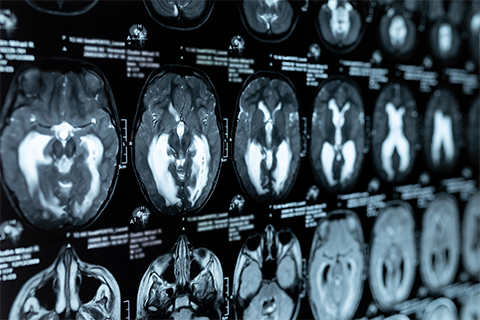
Carrying an apolipoprotein ε allele 4, or APOE4, gene is also a marker for Alzheimer’s. This gene produces the ApoE4 enzyme, which impairs metabolism of polyunsaturated fatty acids such as DHA. Researchers have reported that increased ApoE4 activity results in decreased DHA in plasma and cerebrospinal fluid, or CSF. They have hypothesized that DHA circulation is provided by lipid species such as phosphatidylcholines, cholesteryl esters and triglycerides, or TGs, and that ApoE4 affects metabolism of these lipids and circulation of DHA.
Researchers still did not know which lipid species is important for DHA and which is affected by ApoE4, however. Mikaila Ann Bantugan, Haotian Xian and Victoria Solomon of the University of Southern California and a research team investigated this question and published their study in the Journal of Lipid Research.
The transport of DHA on plasma TGs is significant in Alzheimer’s. The team observed that APOE4 had the strongest effects on the DHA containing TG lipids and that increased DHA within TGs was suppressed in APOE4 carriers compared to noncarriers in CSF and plasma. Also, supplementing with algal TG-based DHA for six months increased EC thickness in human study participants independent of ApoE4 presence.
This study used a small sample and did not consider body mass index and sex. However, their findings indicate that DHA supplements may be an alternative treatment for memory loss in Alzheimer’s disease and provide another approach to understanding the role of ApoE4 in the disease.
The role of sex in regulating heat
Thermogenesis, or heat production, can be regulated by the hypothalamus and is an important component of regulators of energy homeostasis. Reduced thermogenesis cuts energy consumption during energy deficiency, known as negative energy balance. In the hypothalamus, pro-opiomelanocortin, or POMC, neurons are essential to regulate the negative energy balance and regulate lipogenesis in brown and white adipose tissues. Toll-like receptor 4, or TLR4, also regulates lipogenesis; a part of its signal is produced in the hypothalamus, and activation of this signal inhibits the anorexia signal that triggers lipid production. Although POMC cells and TLR4 are associated with the anorexia signal, researchers have not yet proved a POMC–TLR4 relationship.
Yongxiang Li, Shuqing Zhu and a team of scientists in China investigated this question and published their findings in the Journal of Lipid Research.
The group genetically altered mice with POMC cells lacking TLR4 receptors to observe metabolic changes. In the male mice, this affected lipogenesis in brown adipose tissue and increased thermogenesis, resulting in reduced body weight. In female mice, deleting TLR4 in POMC neurons decreased energy expenditure and increased body weight, which affects lipolysis of white adipose tissue. These sex-dependent effects indicate that sex should be considered when developing treatments for obesity.
A tale of two proteins in cardiovascular disease
Serum amyloid A, or SAA, protein is a marker of inflammation linked to cardiovascular disease, or CVD, such as atherosclerosis in humans. In mice, SAA promotes development of atherosclerosis. One study has shown that SAA is elevated in obese mice that are genetically altered to be deficient in apolipoprotein E, or ApoE, an enzyme critical to lipid metabolism and cholesterol circulation.
SAA is carried by high-density lipoprotein, or HDL, in the blood. Researchers have reported that binding of cholesteryl ester transfer protein, or CETP, to HDL results in lipid-free SAA and leads to the transfer of SAA from HDL to other cholesterols. However, no one has yet shown whether SAA contributes to the pathologic effect of CETP in mice. Ailing Ji at the University of Kentucky and a group of researchers published their study on this question in the Journal of Lipid Research.
To investigate whether SAA contributes to the pro-atherogenic effect of CETP, the group generated what they called “only apoE lacking mice” as well as apoE-lacking mice deficient in SAA with and without expressing CETP. They found that the effect of CETP was SAA dependent; remodeling of normal HDL lacking SAA did not stimulate CETP-dependent inflammation. However, the pathologic effect of SAA was increased by CETP expression. The scientists state that CETP inhibition may have therapeutic benefits in patients with high SAA levels.
Enjoy reading ASBMB Today?
Become a member to receive the print edition four times a year and the digital edition monthly.
Learn moreGet the latest from ASBMB Today
Enter your email address, and we’ll send you a weekly email with recent articles, interviews and more.
Latest in Science
Science highlights or most popular articles
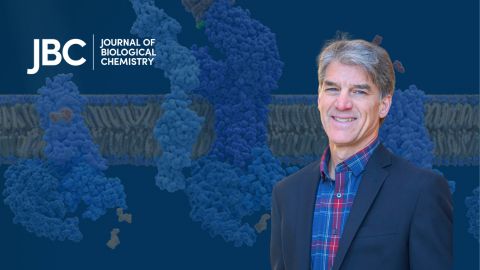
Meet Paul Shapiro
Learn how the JBC associate editor went from milking cows on a dairy farm to analyzing kinases in the lab.
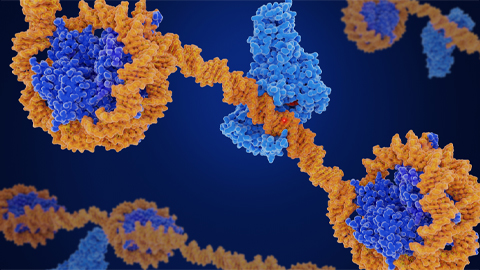
CRISPR epigenome editor offers potential gene therapies
Scientists from the University of California, Berkeley, created a system to modify the methylation patterns in neurons. They presented their findings at ASBMB 2025.

Finding a symphony among complex molecules
MOSAIC scholar Stanna Dorn uses total synthesis to recreate rare bacterial natural products with potential therapeutic applications.

E-cigarettes drive irreversible lung damage via free radicals
E-cigarettes are often thought to be safer because they lack many of the carcinogens found in tobacco cigarettes. However, scientists recently found that exposure to e-cigarette vapor can cause severe, irreversible lung damage.
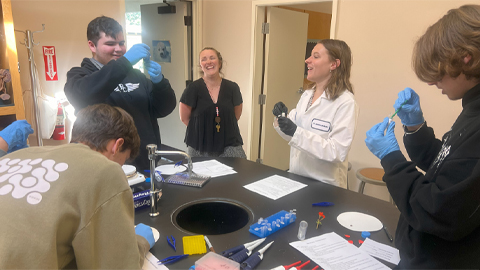
Using DNA barcodes to capture local biodiversity
Undergraduate at the University of California, Santa Barbara, leads citizen science initiative to engage the public in DNA barcoding to catalog local biodiversity, fostering community involvement in science.
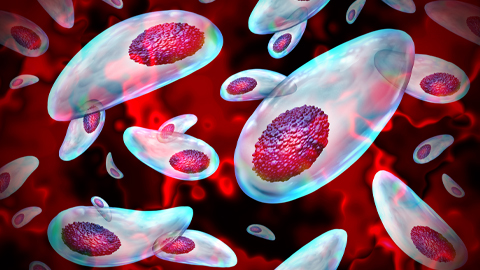
Targeting Toxoplasma parasites and their protein accomplices
Researchers identify that a Toxoplasma gondii enzyme drives parasite's survival. Read more about this recent study from the Journal of Lipid Research.

